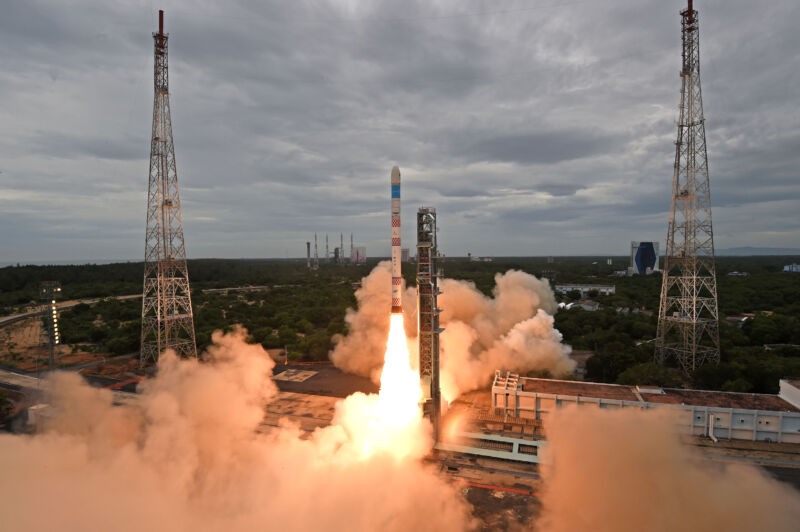

Rocket Report: SpaceX sees rideshare demand, Russia’s odd launch deal with Iran
source link: https://arstechnica.com/science/2022/08/rocket-report-a-big-deal-to-keep-cygnus-flying-sizing-up-the-methalox-race/
Go to the source link to view the article. You can view the picture content, updated content and better typesetting reading experience. If the link is broken, please click the button below to view the snapshot at that time.

Hot nozzle summer —
Rocket Report: SpaceX sees rideshare demand, Russia’s odd launch deal with Iran
"One of the questions that we’re getting a lot is, 'How full are you guys?'"
Eric Berger - 8/12/2022, 11:30 AM

Welcome to Edition 5.06 of the Rocket Report! The big news this week is Northrop Grumman's deal with both Firefly and SpaceX to make sure it can continue flying Cygnus spacecraft to the International Space Station. This is a bold move that draws upon the deep US commercial space industry in order to meet NASA's needs in space. It is great to see this kind of cooperation in the aerospace community.
As always, we welcome reader submissions, and if you don't want to miss an issue, please subscribe using the box below (the form will not appear on AMP-enabled versions of the site). Each report will include information on small-, medium-, and heavy-lift rockets as well as a quick look ahead at the next three launches on the calendar.

Astra pivots to larger rocket. Astra will shift away from its previous mantra of being lean in terms of staffing, moving at breakneck speed, and tolerating some failure in launch vehicles, Ars reports. It will also go bigger in terms of its rocket size. "First, we've increased the payload capacity target for launch system 2.0 from 300 kg to 600 kg," CEO Chris Kemp said. "Second, we're working with all of our launch service customers to re-manifest on launch system 2.0. As such, we will not have any additional flights in 2022. And third, we're increasing investments in testing and qualification."
AdvertisementStarter rocket a non-starter ... The company announced the change in strategy after five failures in seven attempts to launch its smaller starter booster, Rocket 3.3. Kemp said Astra plans to conduct test launches of its new, larger rocket next year, but it cannot commit to starting commercial service with the rocket in 2023. It is unclear whether Astra has the finances to survive one to two years of development work. Astra reported a net loss of $168 million during the first half of 2022, with revenues of just $6.5 million. Meanwhile, the company has cash and marketable securities of about $200 million on hand. (submitted by Ken the Bin)
India's SSLV fails in debut launch. India’s space agency said Sunday the inaugural demonstration flight of the country’s new Small Satellite Launch Vehicle failed to place two satellites into their targeted low Earth orbit, Spaceflight Now reports. The early phases of the mission went according to plan, according to the Indian Space Research Organization. But the launch team was unable to confirm the final stage of the rocket completed its job of placing two small satellites into orbit.
Back at it soon ... The problem appears to have been due to a sensor issue on the fourth stage that caused a premature shutdown. As a result, the two small satellites were injected into an orbit with a perigee of just 76 km. ISRO developed the Small Satellite Launch Vehicle to join the fleet of Indian rockets that include the Geosynchronous Satellite Launch Vehicle Mk.3, GSLV Mk.2, and the Polar Satellite Launch Vehicle. With a production cost of $4 million, the rocket is aimed to compete with Western commercial smallsat launchers. (submitted by EllPeaTea and Ken the Bin)
The Rocket Report: An Ars newsletter
Rocket Lab cadence driven by market demand. The Electron vehicle has been in service for half a decade now, and the company can build a new one every 18 days, says Rocket Lab CEO Peter Beck. "We invested a tremendous amount in all of the systems and processes to be able to do that," Beck said in an interview with Ars. "All of our production systems are really mature." The company could build even more Electrons than this, if needed. But there is not the customer demand or readiness at this point, Beck said.
AdvertisementA niche market ... "The reality is that we built everything to be able to launch once a week," Beck said. "Everything in the factory is designed to be able to process and push through one rocket a week. So from an infrastructure perspective, we can do that. And from a system's perspective, we can do that. It would just require a larger workforce. But the reality is that it's the market that's the driver. For us, our cadence today is 100 percent driven by market demand."
NASA looking for new ride for TROPICS mission. Astra's decision to retire the Rocket 3.3 vehicle has left four small NASA satellites stranded. Although the first two TROPICS cubesats were lost after a June 12 launch failure on a Rocket 3.3 vehicle, four additional TROPICS cubesats were due to launch on two Rocket 3.3 vehicles. With this rocket no longer available, NASA is looking for alternative options to launch the remaining TROPICS cubesats, Space News reports.
Probably not Astra ... "We are still looking for a ride and, once the ride is found, we’ll launch it," said Sachidananda Babu, a program manager in NASA’s Earth science division, during a NASA town hall meeting at the Small Satellite Conference. Astra said it was working with NASA to launch the cubesats on its new, larger launch vehicle, but that rocket may be overpowered for the smallsats. (And it may not be ready until at least 2024). Agency sources said Astra’s announcement that the company was discontinuing the Rocket 3.3 took them by surprise. Switching vehicles poses cost and schedule challenges that NASA is still studying.
Recommend
About Joyk
Aggregate valuable and interesting links.
Joyk means Joy of geeK